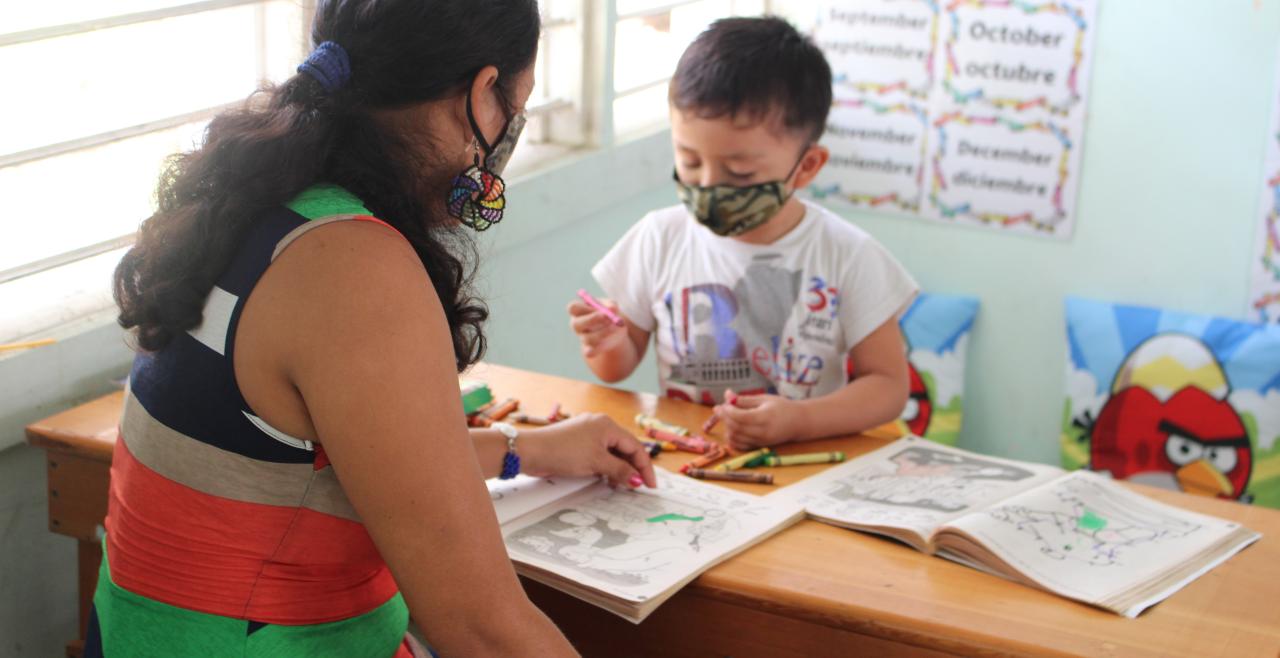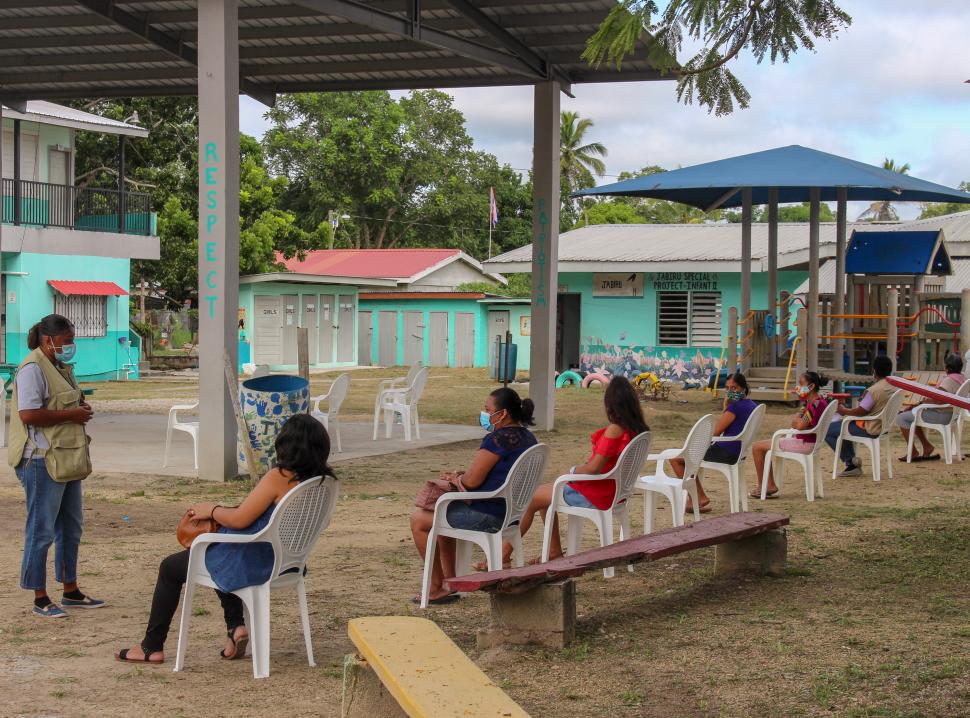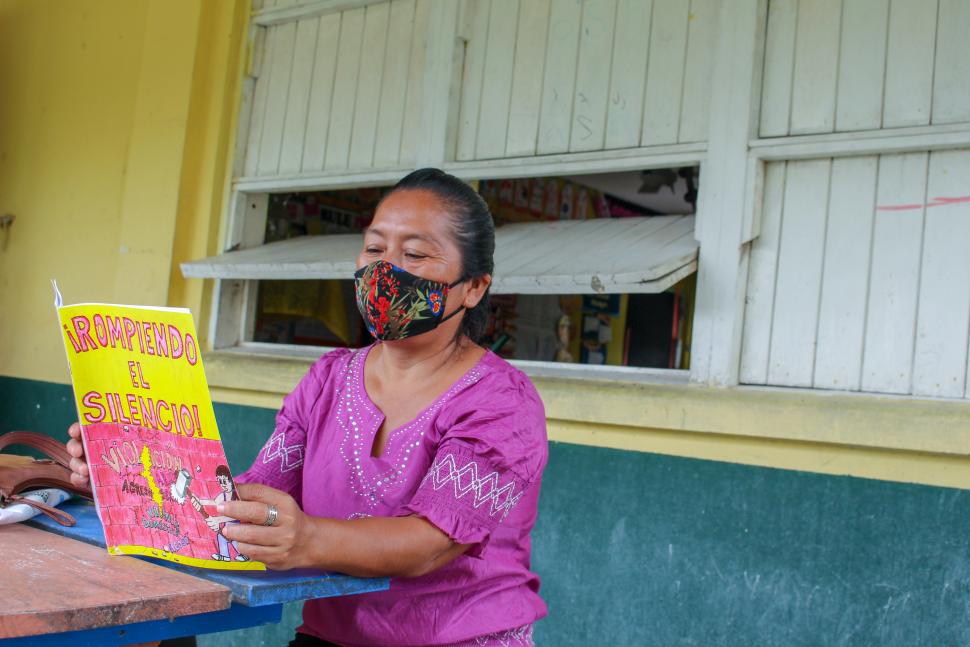Mobile centres are helping women in rural Belize to access healthcare and other essential services

GUINEA GRASS, Belize - Since the COVID-19 pandemic began, Domitillah Noh, 45, has found it difficult to access healthcare services. She lives in Guinea Grass, a small village in the Orange Walk District of Belize. When the town’s only nurse was relocated to assist with pandemic relief efforts, residents were left with few options.
She heard about Spotlight Initiative-supported mobile women’s centres from other women in her village and was encouraged to visit. Not only was she able to get a health check up close to her home, but the centre offered legal advice. It was an opportunity to ask questions about her separation from her husband and the adoption of her child.
"The centre is a great help to women like me. We can get services by visiting the nurse or advice on legal matters, which we often don’t get because it comes with a cost." - Domitillah Noh, 45
“[The centre is] a great help to women like me,” says Ms. Noh. “We can get services by visiting the nurse or advice on legal matters which we often don’t get because it comes with a cost. I know the counselling helps so many women here. They feel good being able to talk to someone and get the advice they need. It gives me hope to push forward despite my problems — it gave me strength.”
COVID-19 has made it especially difficult for women and girls to access essential services, particularly those in isolated, rural communities. Many are forced to travel over an hour to reach the nearest clinic or hospital — a journey made even more challenging by the fact that public transport has been limited during the pandemic. With many health services now redirected to containing the virus, women and girls are being left behind.
To address this gap, Spotlight Initiative supported the establishment of six mobile women’s centres in Belize last year. These centres travel to communities offering free services to women in the hardest to reach places, including in the regions of Toledo, Corozal and Orange Walk. They provide sexual and reproductive health services, legal advice, psychosocial support and information on gender-based violence at a single location. In addition to meeting women in the communities where they live, the mobile centres refer clients to longer-term care through civil society organizations, government services and private services. They include daycare to take care of children while mothers and caregivers access services. So far, 398 people have used the centres, 89 per cent of them women and girls.
"Not having access to information or services makes women more vulnerable... Mobiles like these help empower women in my community" - Patty Witzil, Village Chairwoman of Trial Farm.
Dina Hernandez, 47, a community healthcare worker with the Ministry of Health, explains that until now, access to contraceptives, vaccines and emergency care has been limited for women in Guinea Grass. “Women work during the day and have to travel to the nearest hospital if they need services, which many times is not possible,” she says.
This issue is not isolated to Guinea Grass. In nearby Trial Farm, Village Chairwoman Patty Witzil, 27, says her community experiences similar challenges. “My community has many single mothers who are out of work [because of the pandemic]. Many of them face or are at risk of violence… Not having access to information or services makes them even more vulnerable.”
“Mobiles like these help empower women in my community and will help them in the future,” says Ms. Witzil. She adds that women and girls often find visiting the doctor intimidating because of the travel and expense required. By bringing services into communities, mobile clinics remove many of the obstacles to access. “[The clinics ] give women a better understanding [of their choices], a good perspective and make them feel they are not alone,” she says.
The mobile centres will continue serving women and girls in communities countrywide, especially those in remote areas, ensuring that no woman or girl is left behind.
By Perla Hinojosa


